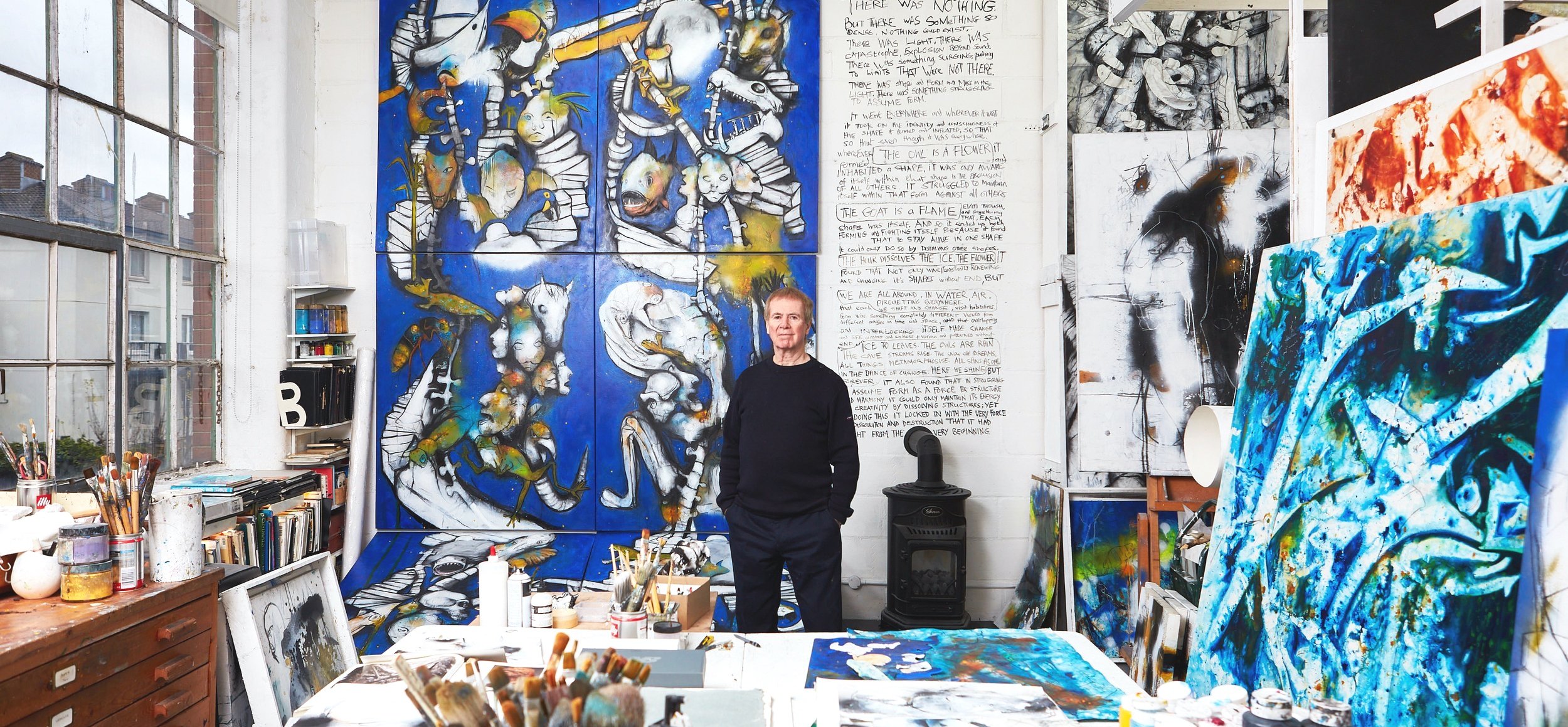
Biography
Nick Malone was born in the north of England, his childhood spent stargazing and exploring the surrounding moors. His subsequent education included postgraduate degrees in Contemporary Literature from Queen Mary College, London and in Fine Art from Central St Martins.
Initially he was a writer, supported by an academic career that included periods as a Visiting Professor at Thessaloniki University, Greece and the University of Wisconsin in the States. His first book, The Burial of Crispin Pyke, had an introduction by Sir William Empson, some of whose ideas in Seven Types of Ambiguity he subsequently transferred into painting. He travelled extensively across Russia, Europe and America, experiences that combined to provide creative material for his later work.
In his thirties, against all advice, he then threw up everything to become an artist. Nick Malone’s work has been exhibited across the world, from Japan to the United States, including at the Royal Academy and the Carrousel du Louvre. He has won various awards, including Arts Council England Awards and Fellowship of The Royal Society of Arts. His artwork and artist’s books are represented in a number of collections, including The British Council, Salford Art Gallery, The Royal Society of Arts, Milton Keynes Gallery Archive, The Drawing Room, The University of Wisconsin, BUPA, The RAC and GlaxoSmithKline.
Throughout he explores issues of identity, transformation and change. His art practice has evolved over time, from a hybrid abstraction to his more recent work using collage, text and imagery, providing an iconography of inner fable, archaeology and dream.
Nick Malone is married and has two sons; he currently lives and works in Greenwich, London.
Statement
My current work crosses art forms with journeys of transformation, exploring issues of identity, dissolution and change while engaging the viewer on several levels. These ideas developed particularly in two recent exhibitions, ‘The Disappearance of Makepeace’ at the Bermondsey Project Space, and work created for the Milton Keynes Gallery Plus Tate exhibition ‘MK Calling 2020’ .
In both cases they were underpinned by the narrative of a mystery thriller written with the support of Arts Council England, ‘The Disappearance of Makepeace - A Tale of Two Lives’, an artist’s book tracing the relationship of Eustace and Makepeace, from their first childhood meeting to their final encounter. It is a story of disappearance, loss and discovery, and is partly based on events in my own life, enabling me to distill ideas that have evolved over a period of time.
The book itself has windows cut into the alternating pages with two ways of seeing, one the everyday life of Eustace, the other the magical visions of Makepeace, each looking into the other’s co-existing world. Similarly, in gallery exhibition, windows cut in some canvases open into other worlds, or soar up to the ceiling on cables, where combinations of animation, soundscape and text enable words and painting to interact in new ways; other work occupies a third space between drawing and sculpture, with dissolving planes that range from near abstraction to a hybrid realism, a magic workshop at that interchange of observation and dream where new kinds of art can still be developed.